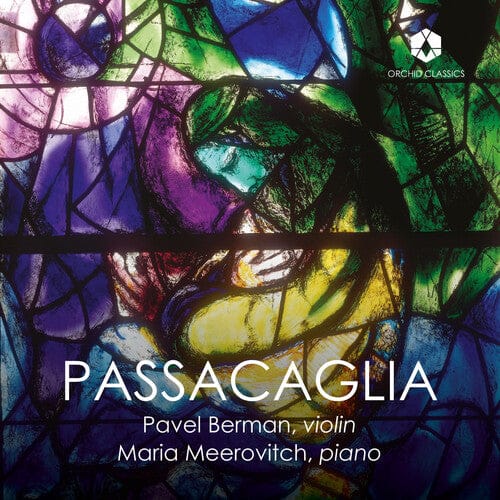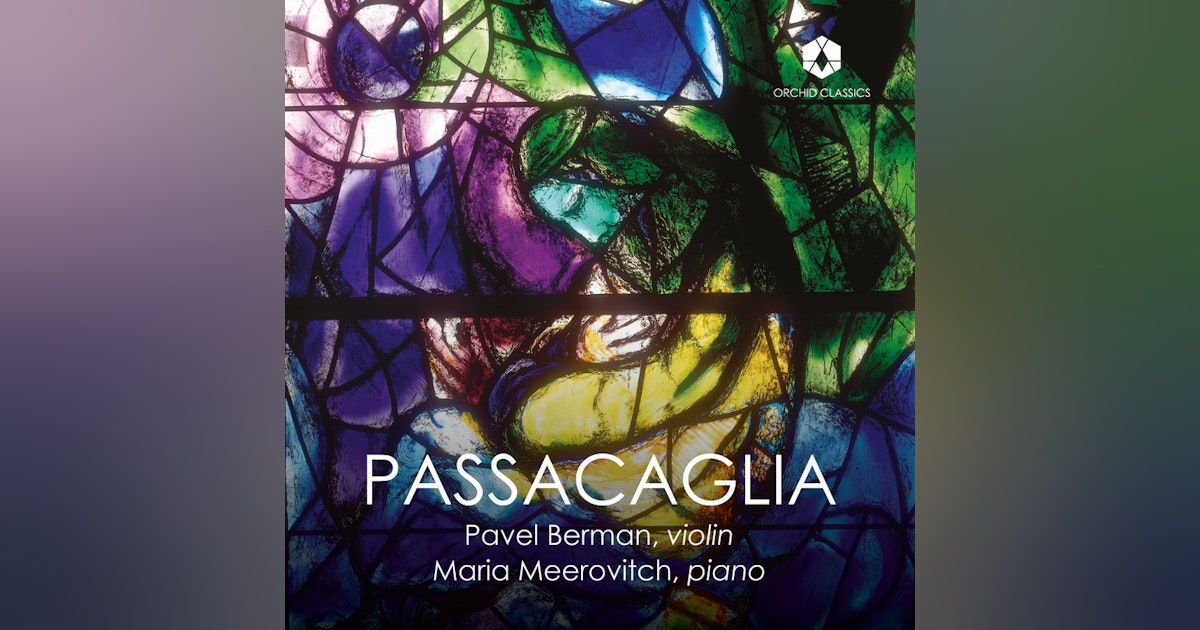
This is a tremendous coupling. We have been looking at quite a lot of Respighi of late (orchestral works from Wuppertal; orchestral transcriptions of Bach and Rachmaninnov from Liège; his operas Maria Egiziaca and La Bella dormente ned bosco on DVD/Bluray – and don’t forget my review of the Guildhall staging of both of those, available on the Gramophone website, plus the wonderful conductor Alessandro Crudele in orchestral works, including Pini di Roma). So, we have investigated both orchestral and operatic aspects of his output But not, so far, the chamber side,
Included here, then, is Respighi’s major Violin Sonata. Before we move to it, hough, it is worth pointing out that there is an earlier student work dating from his days in Bologna, from 1897, described by its publisher, A. R. Editions, as ” in a light salon style and filled with drama, youthful exuberance, lyricism, and Schumannesque intimacy”: you can find excerpts of the score here. It is certainly not as intense as the later work but it is still impressive, which makes it all the more surprising that it was not published until 2011. Here’s the Hyperion recording with Tanja Becker-Bender on violin and Péter Nagy on piano. Interestingly, it ends with a Scherzo:
The one on the Orchid Classics disc under consideration today dates from 1916-17 and is therefore just after Fountains of Rome. Pavel Berman, the violinist (born 1990, Moscow) is the son fo the great pianist Lazar Berman. Pavel won Second Prize in the 1987 Paganini Competition (aged 17) and won both First Prize and Gold Medal at the 1990 Indianapolis Violin Competition.
The first movement certainly wears its heart on its sleeve, full-bloodedly Romantic and heard in a fine performance here by Pavel Berman and Maria Meerovitch. Berman’s sound is strong, and Meerovitch captures the manic sweep of the piano part:
The central Andante espressivo is rather different, reflecting an internalised Italianate warmth which links more to Impressionism. The performance here is blissfully tender:
This comes in marked contrast to the monumentalism of the finale, a Passacaglia. I find Meerovitch stronger than Berman here:
There s more competition than one might think for this piece. For a truly expressive first movement, boasting some special piano playing, try Renaud Capućon with Francesco Piemontesi live from Lugano (we met Piemontesi in Dresden, live, here). Some might find Capuçon a touch too heart-on-sleeve though – the music turns its head a little too much towards César Franck:
My own personal favourite is Josef Suk and Jan Panenka, recorded in the Domovina Studio in Prague in 1958 and released on the Czech Supraphon label. There is a febrile sense of intensity to the first movement. I believe the image on this YouTube get be the original Supraphon LP:
Penenka is revelatory in the second movement, shading his long opening solo charismatically and beautifully; Suk’s response is almost vocal:
While Supraphon’s recording might not fully support the piano in the Passacaglia (not Panenka’s fault, for sure), this remains an astonishingly resolute performance:
Other notable performances in the catalogue are Tasmin Little and Piers Lane’s beautiful account on Chandos (although the recording is arguably a touch generous), and “the Francescas” (Francesca Dego and Francesca Lombardi) on DG, a finely shaded, eminently recommendable account in fine sound.
A relatively long time ago, Pavel Berman recorded Prokofiev’s Second Violin Sonata with his father, Lazar, for Discover International (I think it was released in around 1994); he also recorded both Prokofiev Sonatas with Vardan Mamikonan for Dynamic.
Now he turns his attention to more music from his homleland, Dmitri Shostakovich’s late Violin Sonata, Op. 134, written in late 1968, and first performed in May 1969. It is a fascinating work, and includes Shostakovich experimenting with twelve-tone technique (the piano gives out a tone-row at he beginning). Berman and Meerovitch give a good account, especially in the ghostly, almost hallucinogenic moments, but just occasionally they fail to plumb the work’s depth by presenting gestures a touch literally (those tremolos on violin, surely sul ponticello, go for little here):
For all of Meerovitch’s creditable pianism, I would like more bite to the Allegretto:
But the finale, another Passacaglia, fares better. This is Shostakovich at his greatest, and Berman and Meerovitch offer their best in response. The music sounds held-breath, unfolding very much in its own time.
My two favourite comparisons here include Igor Oistrakh, for whom the work was written and on whom more soon, and Viktor Tretiakov (with Michael Erekhin, piano). the more I hear of Tretiakov the more his playing appeals. and he offers a tensile recording from 1970 in the Brilliant Classics box dedicated to him. Sometimes seen as “Tretyakov,” you can lean more about him here. There his something very gritty about his playing: Oistrakh tends to be more multivalent.
In the absence of Tretiakov, here’s Oistrakh with the great Sviatoslav Richter on piano, a live performance from 1969:
Both offer layers of depth unavailable to Berman and Meerovitch; a fine modern alternative is Isabelle Faust and Alexander Melnikov on Harmonia Mundi.
Nevertheless, this remains a recommendable disc, the Respighi in particular impressive.
Passacaglia is available at Amazon here. Streaming below.









